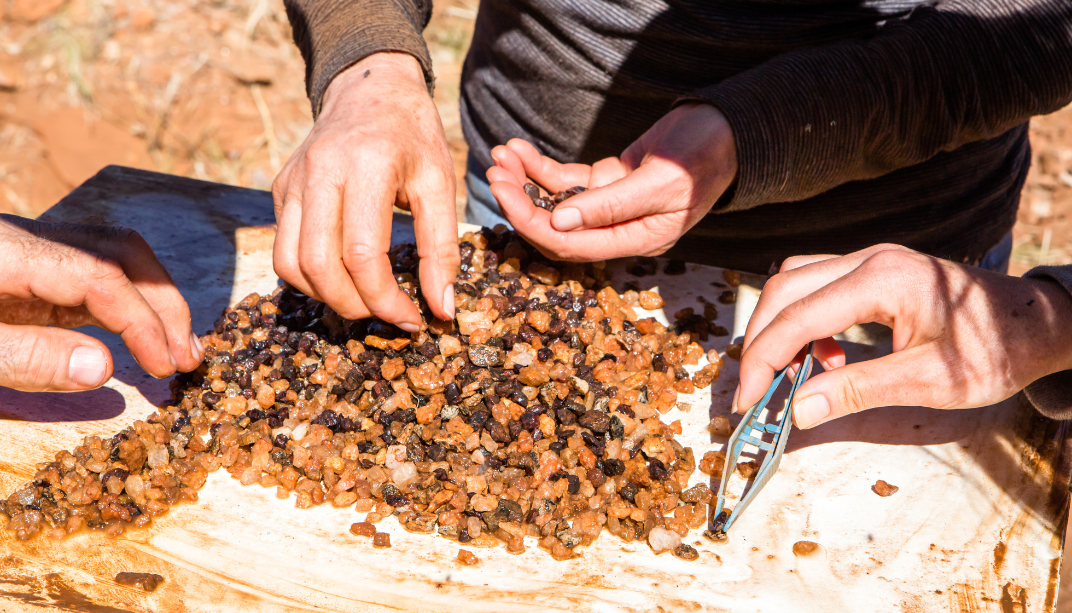
Is Ethical Gem Mining Possible?
Ethical gem mining refers to the practice of mining, cutting, and trading gemstones in a socially and environmentally responsible manner. It focuses on responsible gem mining practices, sustainable gem mining, and the ethical sourcing of gemstones. With increasing concerns about the impact of mining on the environment and the well-being of miners, the question arises: is ethical gem mining possible?
While there are challenges in ensuring the ethical sourcing of gemstones, it is indeed possible through traceability, transparent supply chains, and the strict adherence to ethical standards. Responsible gem mining practices aim to prioritize fair labor practices, safe working conditions, fair pay, and the protection of the environment.
In this article, we will explore what constitutes ethical gem mining, how to find ethically sourced gems and jewelry, the difference between ethical, sustainable, and conflict-free gemstones, and how consumers can drive change in the gemstone industry. We will also discuss ethical gemstone mining in different countries and responsible sourcing practices worldwide.
Join us as we delve into the world of ethical gem mining and discover the future of the ethical gemstone industry.
What Are Ethical Gemstones?
Ethical gemstones are stones that have been responsibly sourced, mined, cut, and traded with a focus on social and environmental considerations. These gemstones prioritize fair labor practices, ensuring the ethical treatment of miners, and promoting safe working conditions. Additionally, ethical gemstones are sourced from mines that prioritize environmentally friendly practices, striving to minimize their impact on the land.
When it comes to ethical gemstones, transparency is key. The sourcing of these gemstones involves traceability throughout the supply chain, allowing consumers to know where a gemstone came from and the ethical practices involved in its production. This transparency ensures that ethical gemstones are accountable and adhere to strict ethical standards.
Overall, ethical gemstones are a reflection of responsible gemstone sourcing. By choosing socially responsible and environmentally friendly gemstones, consumers can support fair labor practices in gem mining, promote the ethical treatment of miners, and contribute to the responsible sourcing of gemstones.
Ethical Gemstones vs. Conventional Gemstones
| Ethical Gemstones | Conventional Gemstones |
|---|---|
| Responsibly sourced | May involve questionable or unethical practices |
| Fair labor practices | May exploit workers |
| Safe working conditions | May have hazardous working environments |
| Environmental sustainability | May contribute to environmental degradation |
| Transparent supply chain | Supply chain may lack transparency |
As shown in the table above, ethical gemstones prioritize responsible practices, fair treatment of workers, safety, sustainability, and transparency. In contrast, conventional gemstones may be associated with unethical practices, worker exploitation, hazardous conditions, environmental degradation, and opaque supply chains.
Finding Ethically Sourced Gems and Ethical Jewelry
Finding ethically sourced gems and ethical jewelry requires careful research and evaluation. It is important to prioritize responsible gemstone suppliers who adhere to ethical practices throughout their supply chains. Transparency in gemstone sourcing is a key factor to consider when determining the ethics of gemstones and jewelry.
Reputable suppliers should be able to provide information on where the gemstones were mined, who cut them, and the ethical practices followed throughout the supply chain. This transparency allows consumers to make informed decisions about their purchases and support companies that prioritize ethical sourcing.
Verified certifications, such as Fair Trade or Responsible Jewellery Council, can also serve as indicators of ethical sourcing. These certifications provide assurance that the gemstones and jewelry have been produced and traded in a socially and environmentally responsible manner.

Tips for Finding Ethically Sourced Gems and Ethical Jewelry
| Tips | Description |
|---|---|
| 1. Research Suppliers | Look for suppliers with a reputation for ethical practices and transparent sourcing. |
| 2. Ask Questions | Don't be afraid to ask suppliers about their sourcing practices, including mine locations and labor conditions. |
| 3. Verify Certifications | Check for certifications from reputable organizations, such as Fair Trade or Responsible Jewellery Council. |
| 4. Traceability | Choose gemstones and jewelry that come with a stated origin, allowing you to trace their journey from mine to market. |
| 5. Support Ethical Brands | Look for brands that prioritize ethical sourcing and sustainability in their practices. |
By following these tips and being an informed consumer, you can play a part in promoting ethical practices in the gemstone industry and supporting responsible suppliers.

When it comes to gemstones, terms like ethical, sustainable, and conflict-free are often used interchangeably. However, it's important to understand the distinctions between these concepts in order to make informed decisions as a conscious consumer.
Let's start with ethical gemstones. Ethical gemstones go beyond simply avoiding conflict zones or minimizing environmental impact. They prioritize fair labor practices, safe working conditions, and the overall well-being of workers and communities involved in the gemstone industry. Ethical gemstone practices aim to create positive social and economic impacts by supporting local communities, respecting human rights, and promoting responsible mining techniques.
On the other hand, sustainable gemstones focus solely on minimizing the environmental impact of gemstone mining. Sustainable practices include using eco-friendly extraction methods, reducing water and energy consumption, and implementing reclamation plans to restore mined areas. The goal of sustainable gemstone mining is to ensure the long-term viability of the industry while minimizing harm to the environment.
Finally, conflict-free gemstones refer specifically to stones that are not sourced from areas of armed conflict or used to fund illegal activities. Conflict-free gemstones aim to prevent the exploitation of natural resources, human rights abuses, and violence associated with the trade of conflict minerals.

How to Tell if You're Buying Ethically Sourced Gemstones
Verifying the ethical sourcing of gemstones involves several key factors, including transparent supply chains, information about the origin of the gemstones, and ethical certifications. One way to determine the ethics of a gemstone is to look for a transparent supply chain. Reputable suppliers should be able to provide information on where the gemstones were mined, who cut them, and the ethical practices followed throughout the supply chain. This transparency allows consumers to track the journey of the gemstone from the mine to the final product, ensuring the ethics of its sourcing.
Information about the origin of gemstones is also crucial in determining their ethical status. Ethical gemstones should ideally have a stated origin, allowing consumers to know where the gemstone came from and the practices involved in its production. This information can help verify that the gemstone was sourced in a responsible and ethical manner.
Ethical gemstone certifications can serve as additional indicators of ethical sourcing. Certifications such as those provided by Fairtrade or Responsible Jewellery Council require strict adherence to ethical standards and can provide assurance that the gemstone has been responsibly sourced. When purchasing gemstones, look for these certifications as they demonstrate a commitment to ethical practices within the industry.
| Ethical Gemstone Verification Checklist | Yes | No |
|---|---|---|
| Transparent supply chain | ✔ | |
| Stated origin of gemstone | ✔ | |
| Ethical certification | ✔ |
When purchasing gemstones, it's important to ask questions and seek transparency from suppliers. Don't hesitate to inquire about the source of the gemstone, the working conditions of the miners, and the ethical practices followed during its production. By taking these steps, you can ensure that you're buying ethically sourced gemstones and supporting responsible practices within the industry.
How Consumers Can Drive Change in the Gemstone Industry
Consumers have tremendous power to drive change in the gemstone industry by demanding transparency and supporting ethical gemstone suppliers. With growing awareness of the social and environmental impact of gemstone mining, consumers are increasingly seeking ethically sourced gemstones that align with their values.
One way consumers can drive change is by demanding transparency from the gemstone industry. By asking questions about the sourcing practices, supply chains, and working conditions, consumers can push for greater accountability and ethical standards. This can create a ripple effect, as suppliers and industry players recognize the importance of transparency in meeting consumer demands.
Supporting ethical gemstone suppliers is another key way consumers can drive change. By purchasing from ethically sourced brands and suppliers, consumers send a powerful message that ethical practices are valued. This can create a market demand for ethically sourced gemstones, motivating more suppliers to prioritize ethical sourcing practices and adopt sustainable mining techniques.
Consumer Power for Ethical Gemstones
| Actions | Impact |
|---|---|
| Demanding transparency | Encourages accountability and ethical standards. |
| Supporting ethical suppliers | Creates market demand for ethically sourced gemstones. |
| Encouraging industry-wide change | Influences the industry towards ethical practices. |
By influencing the industry towards ethical practices, consumers can help create a more sustainable and responsible gemstone industry. By making informed choices and using their purchasing power, consumers can drive positive change and contribute to a more equitable and environmentally conscious future for the gemstone industry.
Ethical Gemstone Mining in Different Countries
Ethical gemstone mining can be found in various countries around the world. While countries like the U.S., Canada, and Australia have a positive reputation for their stringent labor and environmental laws, ethical practices can also be found in other regions. However, it may require more research and scrutiny to ensure ethical practices in countries with less established regulations.

Working directly with trusted gemstone dealers who prioritize ethical sourcing and have transparent supply chains is essential in guaranteeing the ethics of gemstones sourced from different countries. These dealers should be able to provide information on the origin of the gemstones, the mining practices involved, and the standards they uphold in their operations.
To give you a better understanding, here is a table highlighting responsible gem mining practices in different countries:
| Country | Gemstone Mining Practices |
|---|---|
| United States | Strict adherence to labor and environmental regulations, emphasis on responsible mining techniques, support for local communities |
| Australia | Strong regulations on labor and environmental practices, focus on sustainable mining, rehabilitation of mined areas |
| Canada | Stringent labor and environmental regulations, emphasis on community engagement and sustainable practices |
| Colombia | Increasing emphasis on responsible mining practices, efforts to reduce environmental impact, community development initiatives |
| Tanzania | Efforts to improve labor conditions, mitigate environmental impact, and ensure fair trading practices |
It's important to note that responsible gem mining practices can vary within each country, and there may be individual mines or suppliers that do not adhere to ethical standards. Therefore, conducting thorough research, seeking transparency, and working with reputable dealers are crucial steps in supporting ethical gemstone mining regardless of the country of origin.
Responsible Sourcing of Gemstones Worldwide
The responsible sourcing of gemstones extends beyond ethical practices to include traceability and support for mining communities. By prioritizing mine-to-market gemstones, which have a fully traceable journey from the mine to the consumer, transparency and accountability are ensured. These traceable gemstones provide consumers with the confidence that their purchase aligns with their ethical values.
In addition to traceability, partnerships with mining communities play a crucial role in responsible gemstone sourcing. Collaborations, such as the Moyo Gems initiative in Africa, aim to promote fair pay, safe working conditions, and sustainable mining practices. Supporting these mining communities helps create a positive socio-economic impact and uplifts the livelihoods of those involved in the gemstone industry.
Responsible sourcing practices allow consumers to make informed choices and contribute to the ethical gemstone industry. By prioritizing traceable gemstones and supporting partnerships with mining communities, consumers can ensure that their purchases have a positive impact on both people and the environment.

| Initiative | Location | Focus |
|---|---|---|
| Moyo Gems | Tanzania | Empowering mining communities and promoting transparent supply chains |
| Responsible Jewellery Council | Global | Setting standards for responsible practices in the jewelry supply chain |
| Fairtrade Gold | Various countries | Ensuring fair pay and safe working conditions for artisanal miners |
Table: Examples of initiatives promoting responsible gemstone sourcing practices
Conclusion
The question of whether ethical gem mining is possible has been explored in this article, highlighting the challenges and potential solutions. While the gemstone industry still faces issues with transparency and regulation, there is hope for a more ethical future.
Consumer awareness and demand play a pivotal role in driving change. By demanding transparency and supporting ethical suppliers, consumers can send a strong message to the industry that ethics and sustainability matter. The power lies in the hands of consumers to shape the future of the gemstone industry.
However, the industry itself must also take responsibility. It is crucial for industry players to prioritize ethical sourcing practices and sustainability. Through traceable supply chains, fair labor practices, and environmental stewardship, the gemstone industry can work towards a more responsible and ethical future.
With increased consumer awareness and demand, coupled with industry responsibility, the future of the ethical gemstone industry looks promising. By working together, we can create a more sustainable and socially responsible gemstone industry for generations to come.
FAQ
Is ethical gem mining possible?
Yes, ethical gem mining refers to the practice of mining, cutting, and trading gemstones in a socially and environmentally responsible manner. While there are challenges, it is possible through traceability, transparent supply chains, and adherence to ethical standards.
What are ethical gemstones?
Ethical gemstones are stones that have been mined, cut, and traded in a socially and environmentally responsible manner. They prioritize fair labor practices, safe working conditions, and the protection of the environment.
How can I find ethically sourced gems and ethical jewelry?
Finding ethically sourced gems and ethical jewelry requires careful research and evaluation. Transparency in gemstone sourcing, verified certifications, and seeking information from suppliers are essential in ensuring the ethics of gemstones and jewelry.
What is the difference between ethical, sustainable, and conflict-free gemstones?
While sustainable gemstones focus on minimizing the environmental impact, conflict-free gemstones are not sourced from areas of armed conflict. Ethical gemstones go beyond conflict-free and sustainability, considering fair labor practices, safe working conditions, and the well-being of workers and communities involved.
How can I tell if I'm buying ethically sourced gemstones?
Verifying the ethical sourcing of gemstones involves looking for transparent supply chains, information about the origin of the gemstones, and certifications such as Fair Trade or Responsible Jewellery Council. Asking questions and seeking transparency from suppliers is crucial.
How can consumers drive change in the gemstone industry?
Consumers can drive change by demanding transparency, supporting ethical suppliers, and asking questions about sourcing and ethical practices. By creating market demand for ethically sourced gemstones, consumers send a message to the industry that ethics and sustainability are important.
Is ethical gemstone mining possible in different countries?
Ethical gemstone mining can be found in various countries, although it may require more research and scrutiny in countries with less established regulations. Working with trusted gemstone dealers who prioritize ethical sourcing and have transparent supply chains can help ensure the ethics of gemstones from different countries.
What does responsible sourcing of gemstones involve?
Responsible sourcing of gemstones encompasses ethical practices, traceability, and supporting mining communities. Mine-to-market gemstones provide transparency and accountability, while partnerships with mining communities ensure fair pay, safe working conditions, and sustainable practices.
What is the future of the ethical gemstone industry?
The future of the ethical gemstone industry looks promising with increased consumer awareness and demand. Consumers have the power to drive change by demanding transparency and supporting ethical suppliers. The industry needs to take responsibility and prioritize ethical sourcing and sustainability.


